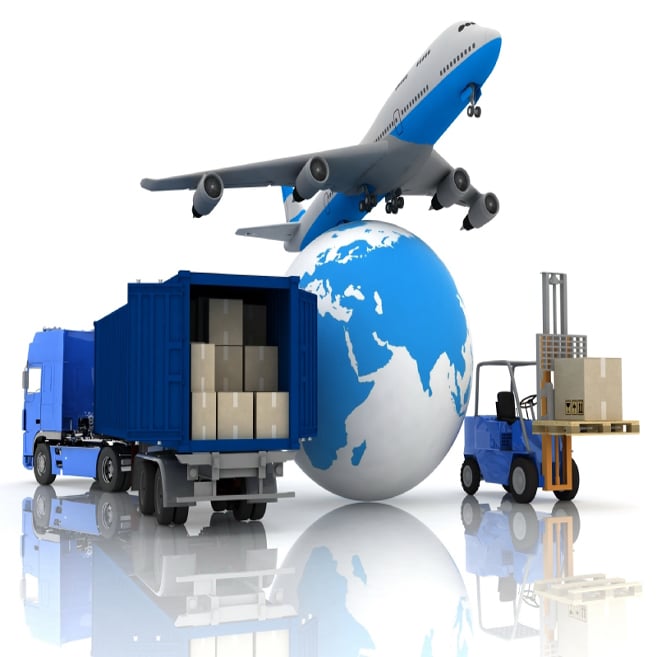
ITAR and EAR- U.S. Export Regulations
The ITAR (International Traffic in Arms Regulations) and the EAR (Export Administration Regulations) are export control regulations run by different departments of the U.S. Government. Both are in place to ensure that restricted technologies do not get into the hands of terrorists and countries who are not operating in accordance to U.S, foreign policies. An export license may be required for both ITAR and EAR controlled items if the parties involved are non-US citizens or involve non-US charted corporations.
These regulations make it mandatory for businesses that manufacture and service electronic communications gear, armor, firearms, radios and other related items, to register with the federal government. While this system is a great way to protect sensitive information, the regulations have proven to be challenging for many businesses.
Article Classification
If an organization is involved with export, reexport, freight forwarding or brokering, a classification must be conducted on the item or service to be exported. This classification should start with screening through the ITAR by determining if the item or service is enumerated in the United States Munitions List (USML). If the item is not found in the USML then classification should be performed against the EAR Commerce Control List (CCL).
Item export for classification should be performed by each organization involved in a transaction to demonstrate due diligence. It is however, appropriate to reuse an organizations previous classifications for a product or service if it has not been modified or revised. It is important to remember when using a previous classification to ensure that the regulations cited are still current as export regulations are undergoing constant revision.
Among the most confusing parts of the ITAR and EAR Rules is the stipulations that it has for software development companies. The regulations state that if the software has been modified for military use, then the company that produced it will have to comply with the regulations.
Applying for Licenses and Technical Assistance Agreements
If an item or service is enumerated in either the USML or CCL the transaction may be banned or require licensing. This will require compiling the required information as specified by either the Directorate of Defense Trade Controls (DDTC) for ITAR, or the Bureau of Industry and Security (BIS) for EAR. This process can take a number of months in some cases so determination of requirements should be performed well in advance of a projected transaction.
For services that fall under the jurisdiction of the ITAR a Technical Assistance Agreement (TAA) is required. A Technical Assistance Agreement is a document which specifies the arrangement between you and the foreign person who will be the recipient of the defense service. A TAA must be approved prior to the release of technical data or a restricted defense service to a foreign person.
Technical data would include information on the design, development, engineering, manufacture, production, assembly, testing, repair, maintenance, modification, operation, demilitarization, destruction, processing or use of defense articles whether or not the technical data is electronic or printed.
Establishing an Export Compliance Program
Both the DDTC and BIS have requirements for an Export Compliance Program. Failure to implement and administer an effective export compliance can result in fines, debarment (loss of ability to export products) and imprisonment. Therefore it is crucial to have a program that meets all requirements.
An effective export compliance program must be integrated into all aspects of an organization. It must clearly define roles, establish policies, train all employees, and provide concise work instructions for the execution of required tasks. Furthermore it must undergo risk assessment and periodic auditing to identify potential shortcomings and incorporate corrective actions.
Considerations for Multinational Entities
Many organizations involved in the export of defense related goods or services have operations in multiple nations. Often these operations are in Canada. The Canadian Controlled Goods Program (CGP) under the Defense Production Act controls goods that have defense or national security importance.
To conduct an export of these items the party must be a Canadian citizen, resident, registered business. They must also be registered with the Controlled Goods Directorate and abide by all requirements of the Canadian regulations along with U.S. ITAR and EAR rules.
CVG Strategy Export Compliance Expertise
If you are part of a large corporation or a small company with a part-time compliance person, CVG Strategy has the compliance and training programs to help you meet ITAR and EAR rules and requirements. Often smaller businesses often don’t have the bandwidth to dedicate to adequate export compliance. Because of this we offer outsourced Export Compliance Officer services. We also offer signs and accessories to aid in Visitor Access Control on our ITAR Store.
CVG Strategy, LLC is recognized the world over as the premier provider of customized ITAR Consulting and ITAR & Export Compliance Programs and Training that addresses critical U.S. Government regulations, from Export Administration Regulations (EAR), to the International Traffic in Arms Regulations (ITAR) and Office of Foreign Asset Controls (OFAC) and other regulatory agencies and more.



